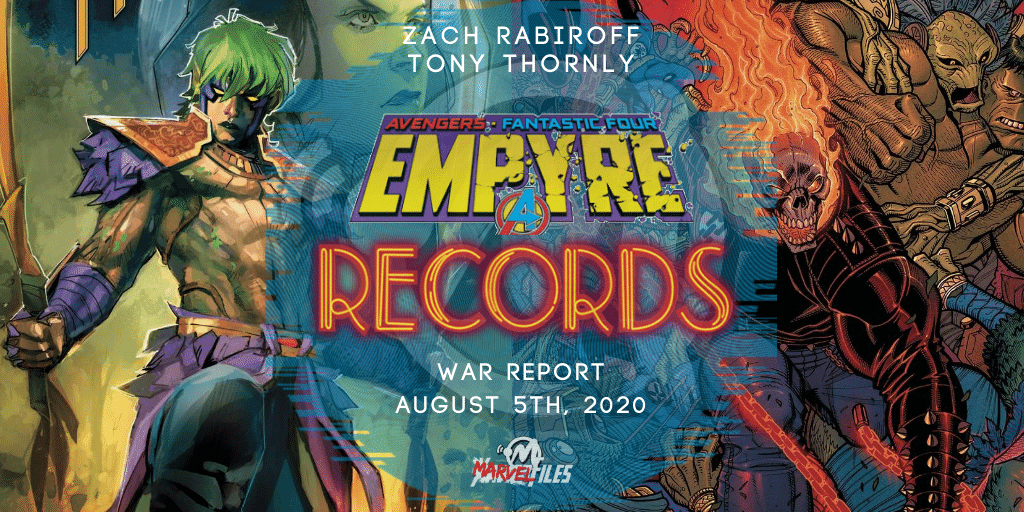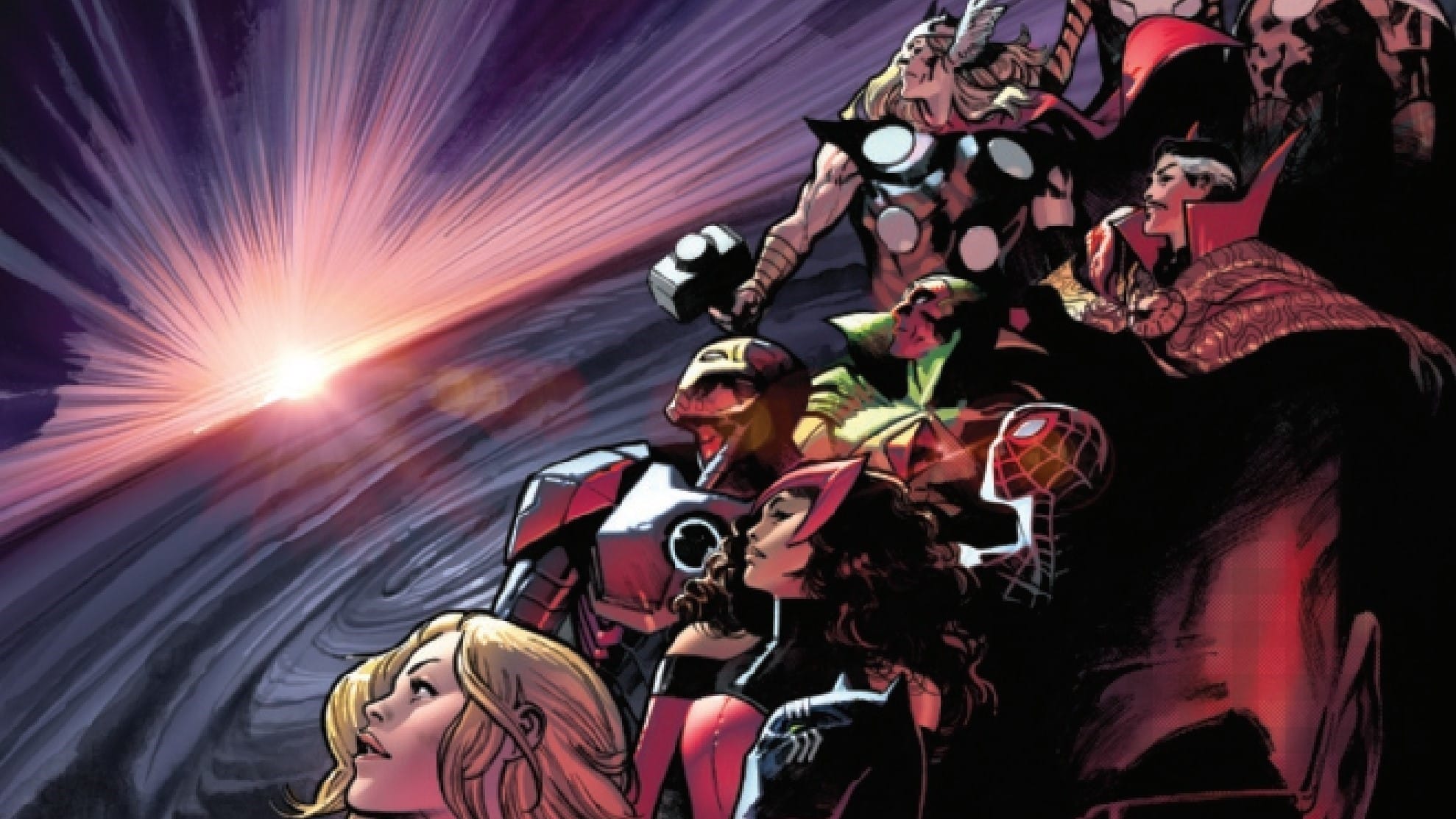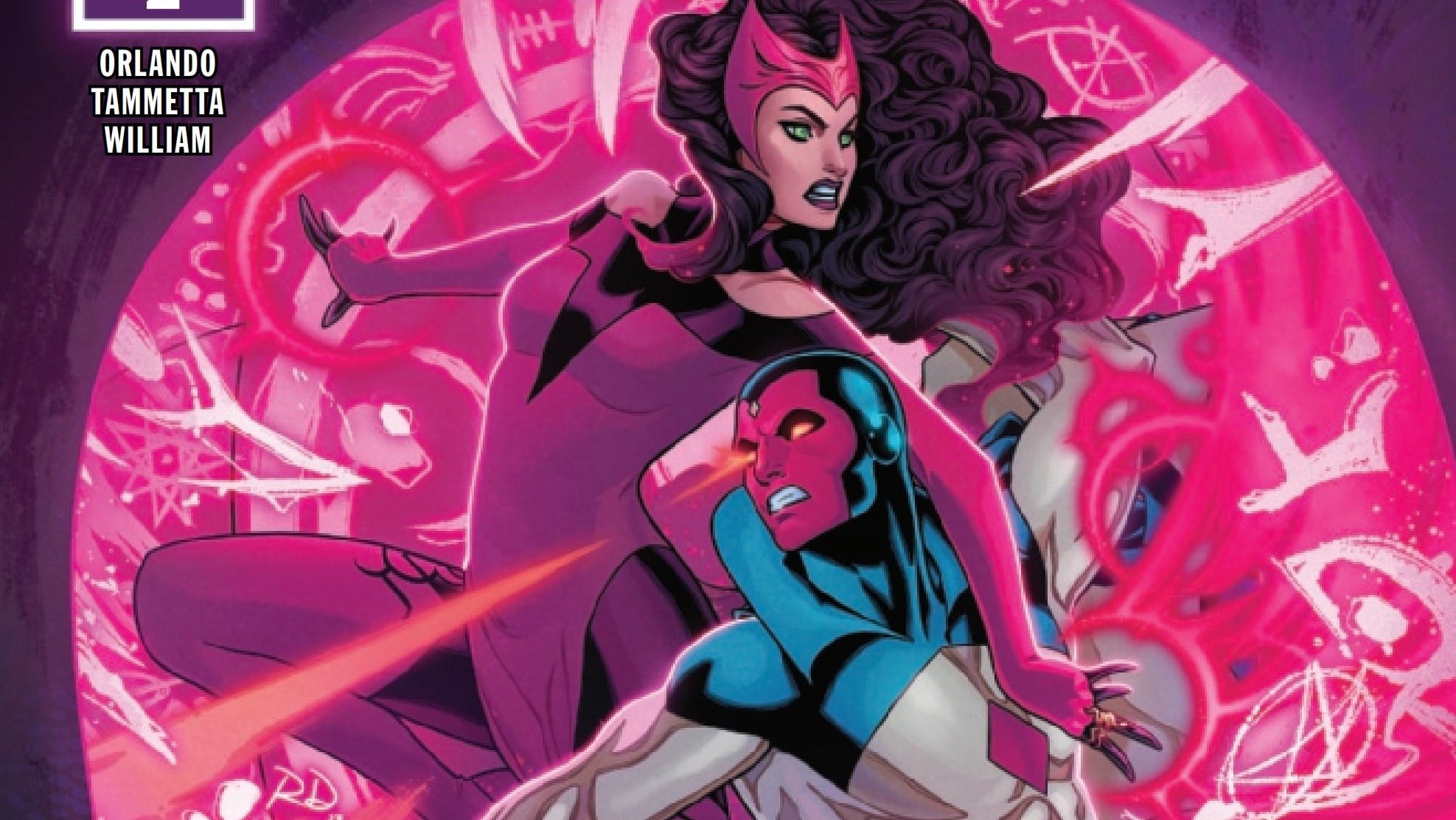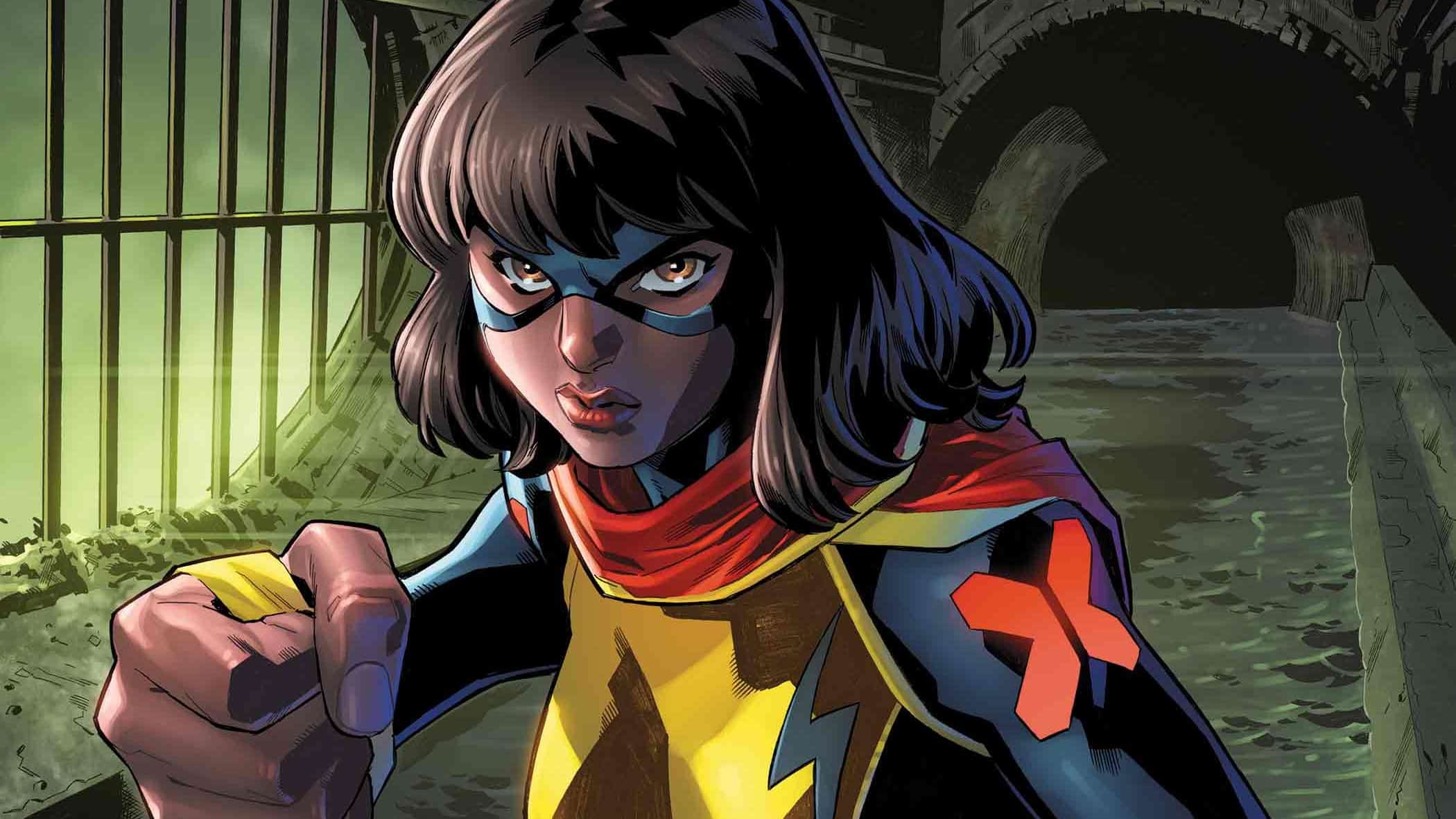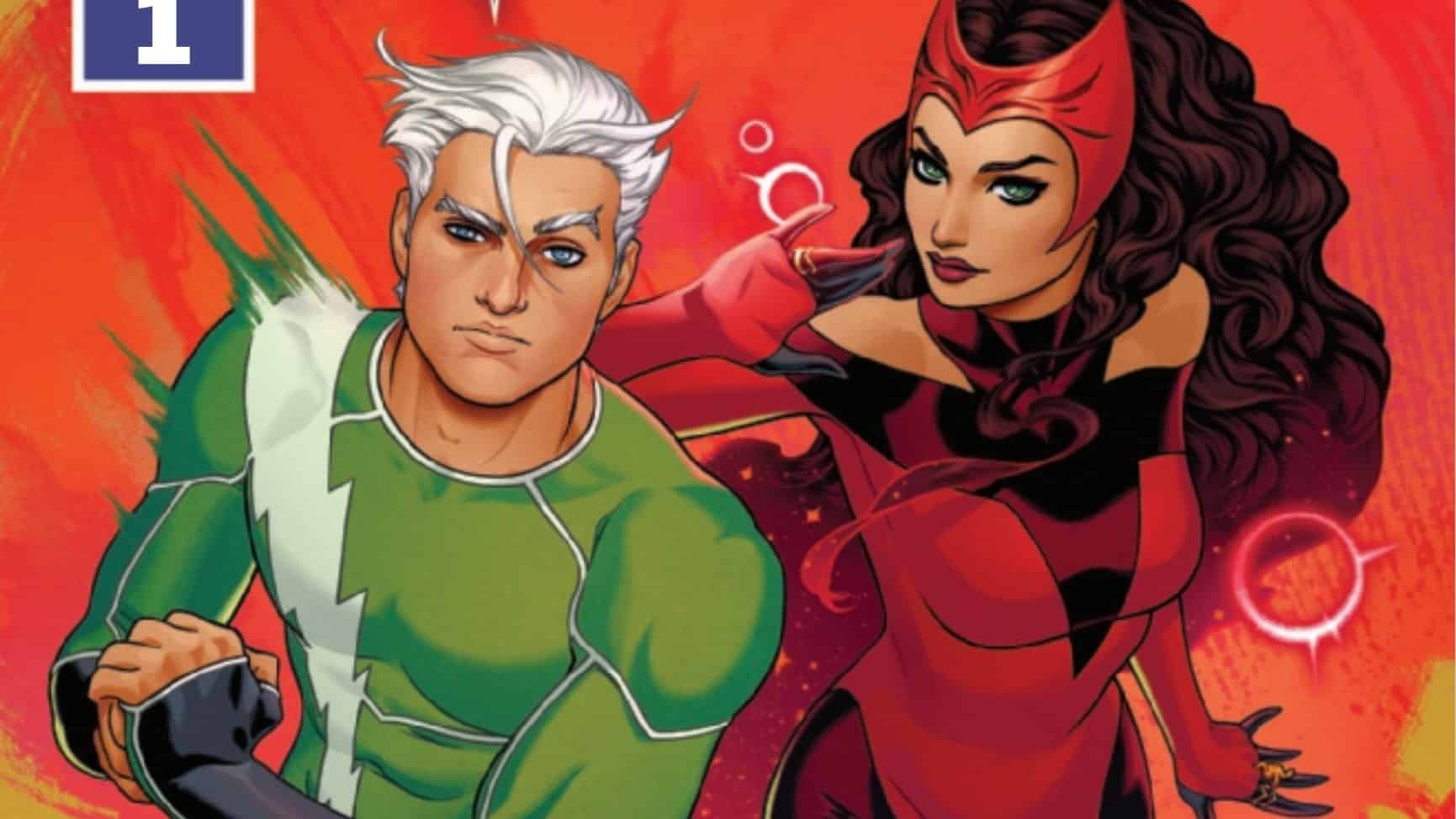Hello friends and readers, Empyre sinks in deep as we cover the highs and lows of this week’s crop of tie-ins. Zach Rabiroff examines the ramifications os Lords Of Empyre: Celestial Messiah #1 by Alex Paknadel, Alex Lins, and Matt Yackey. Then Tony Thornly shows us what those wacky FF kids are doing in Fantastic Four #22 by Dan Slott, Paco Medina, Sean Izaakse, Marcio Menyz, and Jesus Aburtov.
Lords of Empyre: Celestial Messiah #1

Being a child of destiny is a double-edged sword. On the one hand, literature has no shortage of boys and girls born to royalty or divinity, and set on a path to greatness before they can ever consent to it. But what if that consent never comes? What if the Chosen One might have chosen something else entirely? This is the question posed by Lords of Empyre: Celestial Messiah, which attempts to get inside the head of perhaps the least sympathetic player in Empyre’s galactic war. And it’s a credit to Alex Paknadel’s sharp, thoughtful, and idea-rich script that the book succeeds with aplomb, turning a cliché on its head to give us a Celestial Messiah who has not been anointed by fate so much as victimized by it, and who has consequently become a victimizer in turn.
The book’s structure is deceptively simple, walking the reader through the Celestial Messiah Quoi’s appearances in Marvel history, from the wedding of his parents Mantis and Swordsman (or, rather, Cotati-inhabited body of the latter), to a suburban childhood spent in hiding as Mantis attempted to flee the boy’s ordained fate, and finally to the eventual, traumatic manifestation of his powers. This provides a showcase for some remarkably skillful and versatile art from relative newcomer Alex Lins, who skillfully mimics the look and tone of each Marvel era he depicts, from the bright, optimistic colors of Englehart’s Avengers, to the cosmic grit of Abnett and Lanning’s Guardians of the Galaxy.
It’s an effective companion to the script by Alex Paknadel (here making his Marvel debut) which makes a subtle but increasingly undeniable point as the story goes on: that while Quoi is ostensibly the protagonist in this story, he has never really possessed any agency in it. His war against the Kree and Skrulls is an attempt to seize control of a life that has been subject to forces beyond his authority for as long as he can remember – a petulant, catastrophic, and ultimately doomed attempt, to be sure, but one that is humanized through this story in a way we might not otherwise have seen.
Yet while the tantrum-throwing Quoi might be the titular star of the show, the truly important actor in these events turns out to be his mother Mantis, whose attempt to save Quoi from himself provides the dramatic heart of the issue. We’ve talked elsewhere on this site about the quietly desperate tragedy that Mantis’s Marvel history has been over the decades, and it’s a reality that Paknadel and Lins express poignantly here: shoehorned into a marriage and motherhood she never truly understood, raised since birth for a role she couldn’t choose for herself, Mantis, too, is a lifelong victim of other people’s desires. That background turns out to be the key in understanding the erstwhile Celestial Madonna’s role in this crossover: having never been given a real opportunity for choice in her life, her last remaining hope is to give her son the chance for a freedom and selfhood she never had: “W-wanted you to be free [from] p-prophecy,” she tells Quoi near the close of the issue, to which her son responds, correctly, “Yes, I see now. Your role in all this is just as scripted as my own.” This, it turns out, is the terrible weight of prophecies: trying to evade them only gets you deeper in.
Not that Mantis is portrayed as a paragon here. She, too, is human despite the godly role given to her, as Quoi chillingly reminds her by replaying her role in the formation of the Guardians of the Galaxy, when, in a moment of moral weakness, she manipulated the minds and desires of her friends just as she herself had been manipulated. Paknadel is unwilling to give the reader any easy heroes or villains in this story: everyone is a mess of mortal imperfections. Even the Swordsman, lurking in the corners of the flashback sequences, is a fascinatingly ambivalent figure. Bullishly, jingoistically militant in defense of supposed Cotati values, his anger and violence ultimately stems from a sense of secret shame over his semi-human heritage. “Th-they refused me, beloved. They said I was foreign…unclean,” he pleads to Mantis. “Tell me, will it always feel this lonely?” In his desperation to prove his worthiness to Cotati society, he ultimately corrupts its pacifist values in precisely the way they feared his human heritage would: an irony that he would pass along to his son as well. Given that Paknadel is also the writer of a forthcoming Swordsman book in this crossover, it should be interesting to see how the second part of this diptych comments on the character we see here.
If there is a bum note in any of this, it is, oddly enough, in the issue’s depiction of Quoi himself. As much as we see of the boy-emperor’s psyche, and as much as the story adds depth and explanation to his actions, the character himself never does prove himself to be much more than a broken, raging man-child (or man-tree-child, as it were). His serial villain dialogue (“You meat sacks and your boundless capacity for self-delusion”) feels all the more out of place here next to the intelligent, nuanced dialogue given to the other players in this story.
That aside, however, this is an issue that works its way outward from the motivations of its characters, and builds a compelling plot out of the puzzle pieces of Marvel history. We are emerging from an era of cosmic Marvel comics where the deep, complicated storylines of the past seemed buried beneath a desire to embrace a movie-friendly status quo. This issue, along with the crossover it complements, represents a renewed desire to pick up where past writers left off, to use the rich relationships of these characters as the means to say new and interesting things about them, and to add depth and nuance to the four-color plots of previous decades. Paknadel and Lins have created a tie-in comic that enhances the stories it’s built on without being strictly necessary to understand them. That’s about as much as a reader could ask from any crossover issue, and it’s proof enough that these are creators with something to offer Marvel Comics in the months to come.
Fantastic Four #22

I was kind to the last issue of Fantastic Four. It was a bit of event tie-in fluff that I basically forgot everything about the moment I was done writing about it. It was fun if a bit stilted and I was willing to forgive that.
This issue however, I’m not about to be so kind. There was one thing I liked about this issue, and it was the supporting characters. Alicia Grimm and Sky are the best things about this series right now, maybe this entire volume. They’re interesting and well rounded characters, who actually have strong motivations.
However, the rest of the issue is a mess. Wolverine and Spider-Man are written as stereotypical takes on the duo. Logan is gruff and stabby. Spider-Man is all jokes (which is even more frustrating because I think Slott usually writes Peter Parker really well). This is on top of Franklin and Val being written as absolutely insufferable, and the titular team feeling absolutely stiff in their limited page time… It’s probably the most underwritten issue of Marvel comic I’ve read in years.
The plot is interesting at least, and the art is as solid as ever. The Priests of Pama show up on Yancy Street to kidnap the alien kids the team rescued because as a living chronicle they possess knowledge of Kree and Skrull weapons that could give Cotati an advantage in the war. It’s a cool deep cut even if the execution leaves much to be desired. Meanwhile Medina and Isaake do extremely solid work, and work together really well.
Really though? This issue is more fluff. However this time around I wouldn’t even be able to call it enjoyable fluff, and that’s the worst thing a comic can be.

